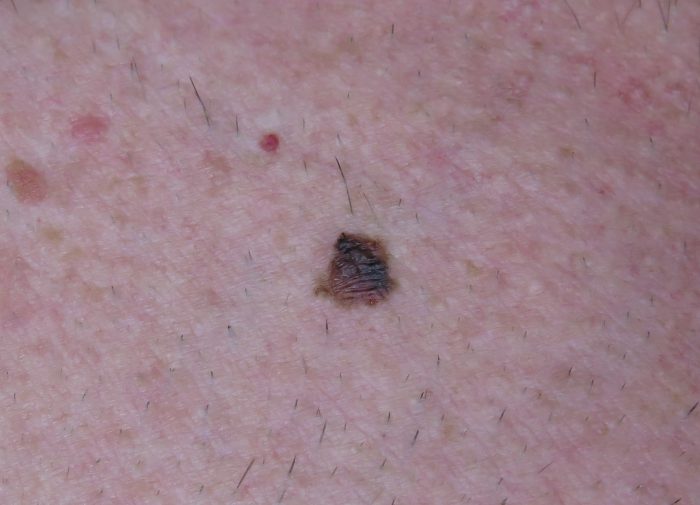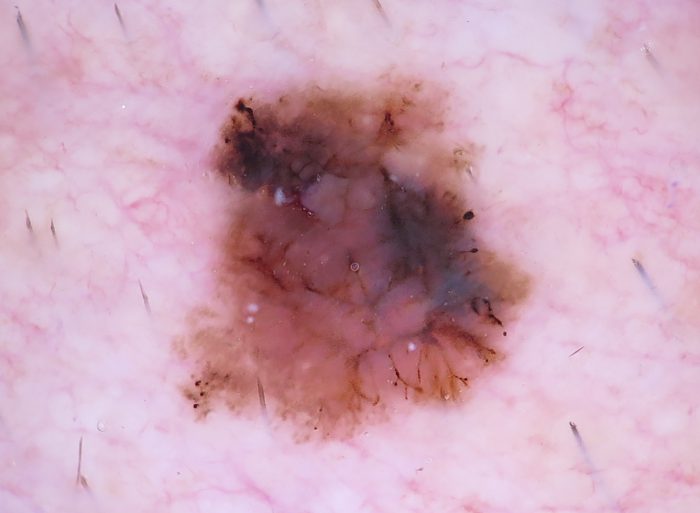Like many areas in life, the devil’s in the detail, and skin cancer is no exception. At times, skin cancers can be relatively obvious to find while, more commonly, they can mimic ‘normal’ skin spots. As such, having an experienced doctor assess your skin regularly is the best and safest approach to finding problem skin lesions.
Generally, an annual full skin check is recommended to avoid missing any spots in obscure or hard to see places on the body. By checking the entire skin surface, many early skin cancers can be identified. A full skin check involves an assessment of a person’s skin from head to toe, including the scalp, mouth, eyes, nails and lymph nodes (‘glands’). You will be asked to remove all clothing except undergarments. Private areas, such as breasts or genitals, are not routinely examined so please advise the doctor if you have any spots of concern that you would like checked in these body regions. Also, please do not to wear makeup or nail polish when attending for a skin check as it can cover up skin lesions, making them harder to assess accurately.
A full skin check usually takes around 15 minutes, and includes an explanation of the clinical findings and any necessary further management at the conclusion of the appointment. Doctors at Summerland Skin Cancer Clinic routinely use a dermatoscope in all skin checks. This is a handheld device which substantially improves diagnostic accuracy of skin lesions compared with ‘the doctor just looking at the spot’. All patients are encouraged to enter the appointment recall reminder system for future skin checks. How often an individual patient should have their skin checked is determined by their medical history, risk of growing future skin cancers and their personal preference. For some people this may be every 3 or 6 months. General advice for anyone without a past history of skin cancer would be a full skin check once a year from the age of 40. Skin checks, however, can be conducted at any age.
On occasion, patients may notice a new skin spot and have concerns only about this lesion. Whilst we do recommend a full skin check to avoid missing unseen skin cancers, brief appointments or ‘spot checks’ are available to examine a single lesion. Please advise our receptionist if you require one of these appointments.

Invasive Melanoma

Same Melanoma (dermatoscopic view)
